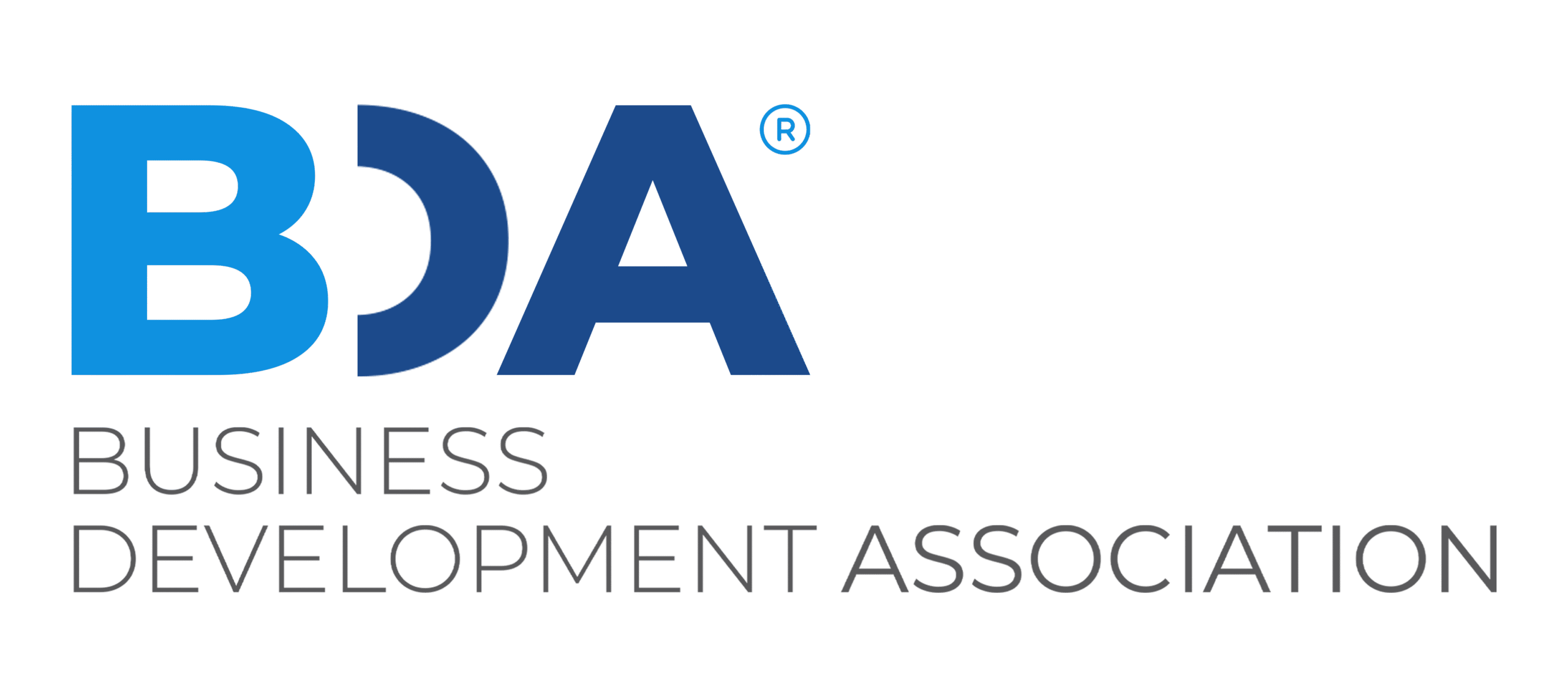There are no products in the cart.
What BDA Exam Covers?
The Business Development Competency and Knowledge Framework (BoCK™) is the global professional reference that identifies the knowledge, skills, and behaviors required to practice a business development career professionally.
About the BDA BoCK™ framework
The framework balances two types of competencies that together form the scientific basis for all BDA certifications and training programs:
Cognitive (technical) competencies at a rate of 55%
Behavioral competencies (leadership and personal) at a rate of 45%
This balance aims to ensure that the business development professional possesses not only technical and analytical knowledge, but also the ability to lead, communicate, and influence to achieve sustainable growth.
The importance of competencies in business development
Business development is a strategic function that combines marketing, leadership, innovation, and partnerships.
Through the BDA competency framework, professionals are prepared to be able to:
Understanding the drivers of strategic and operational growth in complex business environments.
Practicing leadership and communication effectively within teams and organizations.
Applying professional practices based on global standards, integrity and innovation.
Each of the 14 competencies represents an essential dimension of the skills required to build genuine professional success in the field of business development.
BD Behavioral Competencies
How Business Development Professionals Act and Interact
Behavioral competencies represent the core of leadership and human skills that enable business development professionals to communicate, influence, and make decisions that drive sustainable growth.
It consists of seven main competencies, each of which branches into three sub-axes representing the basic behaviors that are measured in professional tests and developed during training.
1. Strategic Leadership
1.1 Defining BD Leadership
Learning Outcomes:
Differentiate between managerial and strategic leadership in business development contexts.
Identify the core roles and responsibilities of an effective BD leader.
Develop a leadership vision grounded in influence, integrity, and results.
1.2 Vision and Execution
Learning Outcomes:
Formulate a clear and actionable strategic vision.
Translate high-level goals into executable growth initiatives.
Balance long-term planning with agile execution in dynamic markets.
1.3 Decision-Making Under Uncertainty
Learning Outcomes:
Apply risk assessment tools to make informed strategic decisions.
Demonstrate confidence and flexibility when operating under ambiguity.
Integrate data-driven insights with intuition to enhance decision quality.
2. Effective Communication
2.1 The Art of Business Storytelling
Learning Outcomes:
Craft compelling narratives that connect strategic goals to audience needs.
Use storytelling as a tool to inspire clients and stakeholders.
Build a professional identity through purposeful communication.
2.2 Persuasion and Influence in BD
Learning Outcomes:
Apply ethical persuasion techniques grounded in shared value.
Interpret nonverbal cues to guide conversations effectively.
Balance assertiveness and empathy in influence-driven settings.
2.3 Managing Communication in High-Stakes Negotiations
Learning Outcomes:
Navigate complex discussions under pressure with clarity and composure.
Control message delivery and timing to maximize impact.
Maintain professionalism and transparency in competitive environments.
3. Business Acumen
3.1 Understanding Business Models
Learning Outcomes:
Explain how organizations create, deliver, and capture value.
Analyze the strengths and weaknesses of existing business models.
Apply commercial thinking to shape development initiatives.
3.2 Financial Literacy for BD Professionals
Learning Outcomes:
Read and interpret financial statements and key performance indicators.
Evaluate how business decisions affect profitability and cash flow.
Participate confidently in financial discussions with leadership teams.
3.3 Risk and Opportunity Evaluation
Learning Outcomes:
Identify and assess operational and strategic risks.
Quantify opportunities using data and market insights.
Balance risk and reward through informed decision-making.
4. Emotional Intelligence (EQ)
4.1 Self-Awareness and Relationship Management
Learning Outcomes:
Assess personal behavioral patterns and their impact on others.
Manage interpersonal interactions with emotional maturity.
Balance assertiveness with emotional control.
4.2 Navigating Difficult Conversations
Learning Outcomes:
Handle sensitive discussions with respect and composure.
Use emotional awareness to de-escalate conflicts.
Maintain relationships even during professional disagreements.
4.3 Building Trust with Stakeholders
Learning Outcomes:
Foster a culture of transparency and credibility.
Build long-term trust through reliability and ethical conduct.
Strengthen professional relationships with consistency and authenticity.
5. Critical Thinking & Problem Solving
5.1 Analytical Frameworks for BD Decisions
Learning Outcomes:
Apply structured analytical tools to assess business alternatives.
Identify root causes of organizational challenges.
Utilize both qualitative and quantitative methods for decision-making.
5.2 Data-Driven Decision Making
Learning Outcomes:
Gather and analyze data to guide strategic choices.
Evaluate outcomes using measurable performance indicators.
Combine analytics and critical reasoning to minimize bias.
5.3 Creative Problem-Solving in BD
Learning Outcomes:
Employ innovative thinking to design unique business solutions.
Apply lateral thinking tools to overcome strategic obstacles.
Convert complex challenges into actionable opportunities.
6. Consultative Mindset
6.1 Shifting from Selling to Advising
Learning Outcomes:
Transition from a transactional sales approach to a trusted advisor role.
Prioritize understanding over pitching to create client-centered solutions.
Deliver insights that influence strategic client decisions.
6.2 Solution-Oriented BD Approaches
Learning Outcomes:
Design customized solutions aligned with real client challenges.
Link proposed initiatives to long-term business outcomes.
Use consultative analysis to define measurable value propositions.
6.3 Long-Term Relationship Building
Learning Outcomes:
Develop sustainable client and partner relationships.
Maintain trust and engagement post-project delivery.
Foster strategic alliances built on mutual benefit.
7. Negotiation & Relationship Management
7.1 Negotiation Strategies for BD Professionals
Learning Outcomes:
Identify appropriate negotiation styles based on deal context.
Apply strategies that achieve win-win outcomes.
Analyze negotiation dynamics and adapt accordingly.
7.2 Win-Win Deal Structuring
Learning Outcomes:
Design agreements that balance commercial and strategic interests.
Integrate organizational goals into collaborative frameworks.
Turn potential conflicts into partnership opportunities.
7.3 Managing Partnerships and Alliances
Learning Outcomes:
Establish governance frameworks for partnership management.
Monitor alliance performance and resolve mutual challenges.
Sustain partnerships through communication and trust-building.
Knowledge-Based Competencies
What BD Professionals Must Know and Apply
Knowledge-based competencies represent the technical, analytical, and strategic foundations of business development.
They enable professionals to assess markets, design growth strategies, and execute with measurable results.
1. Growth & Expansion Strategies
1.1 Market Entry vs. Market Penetration
Learning Outcomes:
Differentiate between new market entry and market share expansion.
Assess entry readiness based on risk, cost, and opportunity.
Choose appropriate strategies aligned with organizational maturity.
1.2 Diversification & Business Scaling
Learning Outcomes:
Identify vertical and horizontal diversification opportunities.
Develop frameworks for scalable business operations.
Evaluate growth potential through operational and financial metrics.
1.3 Organic vs. Inorganic Growth (M&A, JVs)
Learning Outcomes:
Distinguish between organic and inorganic growth models.
Assess merger, acquisition, and joint venture opportunities.
Manage post-merger integration and partnership alignment.
2. Market & Competitive Analysis
2.1 Industry Research & Competitive Benchmarking
Learning Outcomes:
Conduct systematic industry and market research.
Benchmark performance against key competitors.
Prepare analytical reports to guide BD strategies.
2.2 Identifying Business Opportunities
Learning Outcomes:
Identify market gaps and emerging opportunities using data.
Evaluate business ideas through feasibility assessment.
Develop metrics to measure opportunity potential.
2.3 SWOT, PESTEL & Porter’s Five Forces
Learning Outcomes:
Apply classic analytical tools to assess internal and external factors.
Extract actionable insights on industry competitiveness.
Integrate analysis results into strategic growth plans.
3. Innovation in Business Development
3.1 Business Model Innovation
Learning Outcomes:
Redesign business models to enhance value creation.
Utilize tools such as the Business Model Canvas effectively.
Develop innovative frameworks for operational efficiency.
3.2 Disruptive vs. Incremental Innovation
Learning Outcomes:
Differentiate between disruptive and incremental innovation.
Assess innovation impact on competitive advantage.
Balance innovation risk with long-term sustainability.
3.3 Leveraging Technology for BD
Learning Outcomes:
Apply digital transformation tools to drive BD outcomes.
Use AI, data analytics, and automation for opportunity analysis.
Integrate technology into the business value chain.
4. Business Project Management
4.1 Agile vs. Waterfall in BD Initiatives
Learning Outcomes:
Choose appropriate project methodologies for BD initiatives.
Manage cross-functional teams under flexible frameworks.
Track and adjust progress using iterative feedback loops.
4.2 Resource Allocation & Execution
Learning Outcomes:
Prioritize initiatives and allocate resources efficiently.
Manage time, teams, and budgets effectively.
Ensure delivery quality through disciplined execution.
4.3 Key Performance Indicators (KPIs) in BD
Learning Outcomes:
Define measurable KPIs aligned with business objectives.
Analyze performance data to enhance decision-making.
Use KPIs to track strategic progress.
5. Financial & Pricing Models
5.1 Cost-Based vs. Value-Based Pricing
Learning Outcomes:
Understand the logic behind cost-based and value-based pricing.
Set optimal pricing structures that reflect perceived value.
Design pricing strategies that sustain competitiveness.
5.2 Business Revenue Models
Learning Outcomes:
Assess various revenue model types (subscriptions, licensing, services).
Select the most sustainable model for business goals.
Adjust models based on changing market conditions.
5.3 Financial Forecasting & Profitability
Learning Outcomes:
Create reliable financial projections for growth planning.
Analyze profitability and return on investment.
Link financial outcomes to strategic decision-making.
6. Marketing & Sales Strategies
6.1 Lead Generation & Conversion Optimization
Learning Outcomes:
Design strategies to attract and qualify leads.
Analyze conversion rates and optimize sales funnels.
Use data insights to improve sales team performance.
6.2 Digital Marketing & Social Selling
Learning Outcomes:
Leverage digital platforms for brand visibility and engagement.
Implement content marketing and targeted campaigns.
Apply social selling techniques to strengthen customer acquisition.
6.3 CRM & Customer Journey Mapping
Learning Outcomes:
Build and manage effective CRM systems.
Map customer journeys to identify pain points and opportunities.
Enhance customer experience through data-driven insights.
7. Legal & Compliance in Business Development
7.1 Contract Negotiation & Agreements
Learning Outcomes:
Negotiate contractual terms professionally and effectively.
Understand key legal components of commercial agreements.
Balance business objectives with compliance requirements.
7.2 Intellectual Property & Trade Regulations
Learning Outcomes:
Protect intellectual property rights and proprietary assets.
Apply relevant trade and data protection laws.
Ensure compliance in cross-border business operations.
7.3 Ethical Business Practices & Anti-Corruption
Learning Outcomes:
Integrate ethical conduct into daily business practices.
Recognize and prevent corruption and conflicts of interest.
Promote integrity and transparency across all operations.

